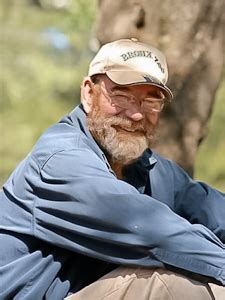A Quote by Svetlana Alexievich
Nothing, not even human life, is more precious to us than our myths about ourselves.
Related Quotes
If we continue to tell ourselves the popular myths about racial progress or, worse yet, if we say to ourselves that the problem of mass incarceration is just too big, too daunting for us to do anything about and that we should instead direct our energies to battles that might be more easily won, history will judge us harshly. A human rights nightmare is occurring on our watch.
Theologians talk about a prevenient grace that precedes grace itself and allows us to accept it. I think there must also be a prevenient courage that allows us to be brave - that is, to acknowledge that there is more beauty than our eyes can bear, that precious things have been put into our hands and to do nothing to honor them is to do great harm. And therefore, this courage allows us, as the old men said, to make ourselves useful. It allows us to be generous, which is another way of saying exactly the same thing.
Some of us can accept others right where they are a lot more easily than we can accept ourselves. We feel that compassion is reserved for someone else, and it never occurs to us to feel it for ourselves. My experience is that by practicing without 'shoulds,' we gradually discover our wakefulness and our confidence. Gradually, without any agenda except to be honest and kind, we assume responsibility for being here in this unpredictable world, in this unique moment, in this precious human body.
We have the ability to choose, we are God's higher form of creation, we surpass all other forms of life and we don't use the mental faculties we've been given. We don't even understand what we are capable of doing. School doesn't teach us anything about ourselves. So the more we learn about ourselves, the more we take control over our life.
It is necessary to guard ourselves from thinking that the practice of the scientific method enlarges the powers of the human mind. Nothing is more flatly contradicted by experience than the belief that a man distinguished in one or even more departments of science, is more likely to think sensibly about ordinary affairs than anyone else.
These days, more than any other time, we are worried about our personal life, our private life. When we talk about our private life, it means our home, our body even. It seems that when we want to have calmness in this world, we make a wall around us. This gives us a very calm environment, and when we feel that somebody is intruding into that, it makes us very angry and we feel we have to do something about it.
Why do we so mindlessly abuse our planet, our only home? The answer to that lies in each of us. Therefore, we will strive to bring about understanding that we are--each one of us--responsible for more than just ourselves, our family, our football team, our country, or our own kind; that there is more to life than just these things. That each one of us must also bring the natural world back into its proper place in our lives, and realize that doing so is not some lofty ideal but a vital part of our personal survival.
Our growing addiction to the Internet is impairing precious human capacities such as memory, concentration, pattern recognition, meaning-making, and intimacy. We are becoming more restless, more impatient, more demanding, and more insatiable, even as we become more connected and creative. We are rapidly losing the ability to think long about any- thing, even those issues we care about. We flit, moving restlessly from one link to another.
The right to the city is far more than the individual liberty to access urban resources: it is a right to change ourselves by changing the city. It is, moreover, a common rather than an individual right since this transformation inevitably depends upon the exercise of a collective power to reshape the processes of urbanization. The freedom to make and remake our cities and ourselves is, I want to argue, one of the most precious yet most neglected of our human rights.
Nothing sweeter than to drag oneself along behind events; and nothing more reasonable. But without a strong dose of madness, no initiative, no enterprise, no gesture. Reason: the rust of our vitality. It is the madman in us who forces us to adventure; once he abandons us, we are lost; everything depends on him, even our vegetative life; it is he who invites us, who obliges us to breathe, and it is also he who forces our blood to venture through our veins. Once he withdraws, we are alone indeed! We cannot be normal and alive at the same time.
Life is a continuous flux. Our nonhuman ancestors bred, generation after generation, and incrementally begat what we now deem to be the species homo sapiens - ourselves. There is nothing about our ancestral line or about our current biology that dictates how we will evolve in the future. Nothing in the natural order demands that our descendants resemble us in any particular way. Very likely, they will not resemble us. We will almost certainly transform ourselves, likely beyond recognition, in the generations to come.

































